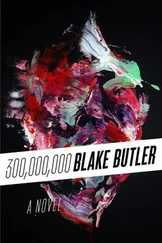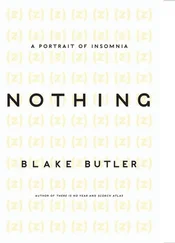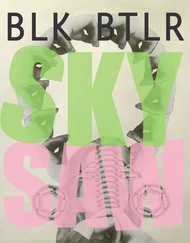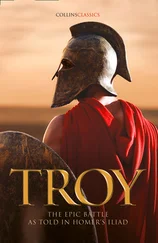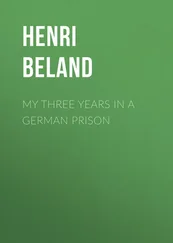The girl’s house’s kitchen was enormous. There were cabinets lined from end to end. Many of the cabinets had been padlocked. From inside some there came a scraping. Pictures of the girl were hung all over — tacked up in tiny frames all up and down the walls and the ceiling and the floor. In some the girl looked very old — much older than the son remembered. In some the girl was an old woman, or a man? In some the girl had so much hair you could not see her in the picture.
The son’s arms were rubbed with rugburn though he did not remember any rug. He couldn’t remember ever leaving off the hallway. He couldn’t think of when he’d closed his eyes.
The house contained no clocks.
On a massive gleaming stove there were several pots and pans and spoons and basins of shifting size. The things smelled awful or they smelled good. Many pots had lids puffed up with overflowing. The kitchen counter was long and marble and very cold. The son touched it with his face.
On the tile over the stove in black marker or grease there was a note: I AM WASHING. I AM TIRED. I WILL FIND YOU WHEN I CAN. LOOK DOWN.
The son looked down. The son could not see anything about the floor. His legs were wobbling a little. He couldn’t think of when he’d last eaten. Maybe several days. His stomach felt lined with ugly light. He turned to look at all the cabinets. He had no idea which one he should open.
In the first cabinet, the son found a long rack of enormous knives — beautiful, sharply made blades that showed his face back to his face. The knives were so huge — as tall as he was, with a book’s width to the blade — he knew he couldn’t take one, though he tried. The metal slithered hot against his body as he stuffed it down his shirt. It burned and fizzled at his chest flesh, becoming soldered. It hurt to rip it free. The aching son replaced the knife inside its holder and watched it look back at him and gleam.
Another cabinet was the size of a warehouse and was stocked with books from end to end. All the books were copies of the same book, rotting, stuffed so full there wasn’t room to move.
In another cabinet there was a replica of the son’s neighborhood complete with every window, every door. Unlike the others, the son could not pry the doors or windows on his own house open, nor could he see in through the glass. A tiny black gazebo sat in their house’s backyard beside the pool. A gazebo? Even smaller bugs were clustered to it, working at the roof. Some smoke rose from its gaps. The son touched the gazebo’s tip, felt an incision. He sucked his thumb and closed his eyes. When he looked again, there were people, many of them, small and teeming, crowded in like ants. They moved on small magnetic tracks set in the ground around his house and the gazebo, wanting in. They had eyes that opened and real hair. Some were shouting, so soft, a shiver purr. They would not see the son above. In other houses the people moved from room to room, at their own mirrors, eating air. From certain windows came a song. The son felt dizzy, dangled upside down. He chose one of the many people and broke the bind off and brought its body closer to his face. The little head was staring, saying something. The son squeezed the tiny body tight inside his palm. Tighter. Tighter. A little bubble. Rumbling. Pop.
That small sound echoed in the son’s ears: pop
pop
pop
pop
pop
The son looked up. Standing beside him there was a little man — scaly, pale, flat features — the man seemed very pleased. He had long arms and a longer mustache and he was dressed in a deep gray bellhop jumper with high-heeled boots, a black neck scarf, and, draped over his shoulders, a snakeskin jacket. He had the biggest teeth the son had ever seen. The teeth all looked like keys. The son was afraid at first that the man would bite. Instead the man got out a little chalkboard.
He wrote, traced in the old dust using his thumb: I HAVE NEVER BEEN OUT OF THE HOUSE.
He set the chalkboard down on the floor where, resting, the text changed: THIS HOUSE IS OUR HOUSE, YOURS AND MINE. The son did not see these newer words. He did not see the text change again.
The man laughed and clapped and splayed his hands — a blackjack dealer’s flourish, followed by sneezing. He went over to another cabinet and reached inside and got a tray. He went to the stove and opened pots and spooned things out onto many little plates, still sneezing, not covering his holes. The man didn’t say anything. He breathed hard. His spine looked ruined or crooked. When the tray was full — so much food, enough for several people — the man hoisted the tray onto his shoulders and pointed with his nose toward another cabinet door — a door shaped just like the son was — son-sized.
So, son? the small man intoned, key-teeth splaying, speaking with no tongue. He sneezed and winked. Shall we? Surely. Oh, by all means, apres vous, allons-y,  , proceed?
, proceed?
The son followed the
man into the cabinet,
down another
hallway, also shaped
like him — though this
one was much shorter
than the others and
there were little
nodules with TV
screens on them
playing films.
Some of the films the
son had seen, though
others were unlike
anything. Some of the
films looked like real
people doing real
things, walking,
eating, taking a
shower, laughing,
playing video games,
brushing teeth.
Some of the films
were quite obscene.
There were films of pigs and dogs being exploded — films of women giving birth, and films of men with women in the stage of birthing preparation (one of the couples in the films looked most exactly like the father and the mother but much younger, the son thought), and there were films of milk pouring from another familiar house’s windows and its girders and its seams ( what house? the son could not remember any house but this one he walked and walked and walked in now) milk that on contact with the air and sky around it turned to mildew and to cheese — cheese that would be someday soon sold and then eaten, sent back into other bodies, carried on. There were films of the son watching a film inside a film inside a house ( that same house again, what was this? what was the son inside there doing with his eyes? ), there were films of the son falling through a great and endless air, the rip of wind and endless light greasing his body, pulling the flesh back in his face, making him look older than he’d ever looked, even in the deepest hours of the night.
Each film looped forever unrepeating, roaring on and on inside its frame, watching the son pass with its blank eyes, negotiating light.
The son saw and did not see.
The son’s eyes were changing colors.
The son turned his head to concentrate on following the back of the bobbing head of the little man with all the food. The man had a tic in his neck that made him spasm so hard the son thought the man was going to drop everything he carried, but just as the tics began to get most convulsive, knobby knots, skin-held explosions , the man’s neck and back and spine at once shaking so hard he hardly seemed to touch the ground, his skin as heavy as the sky — inside the room then the films went off and there they both were, standing face-to-face inside a cube.
This room— made from calming —was
stuffed full of flowers large as the son.
Some of the flowers formed a chair.
There was a gentle music
playing — tones that raised tiny bumps
Читать дальше
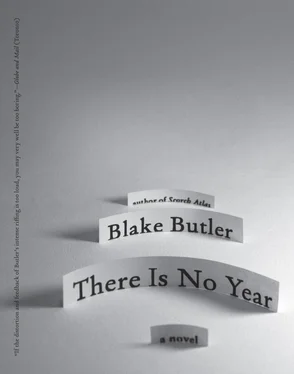
 , proceed?
, proceed?